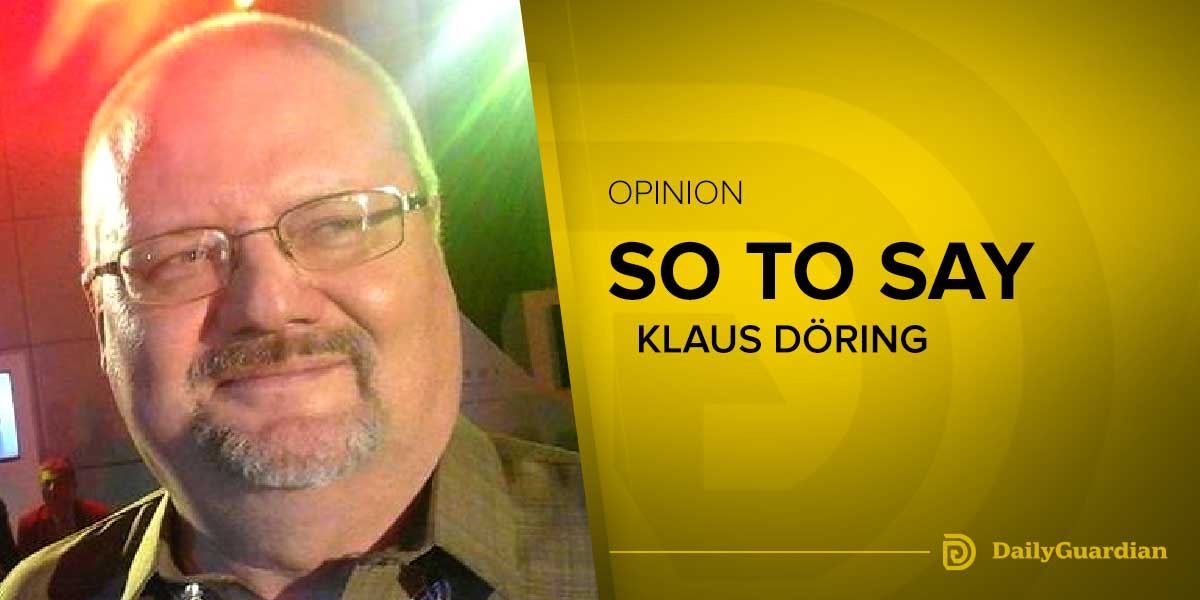 By: Modesto P. Sa-onoy
By: Modesto P. Sa-onoy
THE description of how people here in New York and New Jersey behave in relation to traffic rules does not mean there are no violators. It only suggests that Bacolod and other Philippine cities and towns with growing human and vehicular population can solve the problem of traffic snarls if the law is enforced, as the maxim says, “without fear or favor”.
The problem of the deteriorated and worsening traffic situation in Bacolod cannot be solved even with the importation of “experts” from Metro Manila as long as the situation now prevailing in the city remains.
I pointed out four things yesterday: (1) functioning traffic signal lights; (2) sidewalks cleared of illegal structures and businesses; (3) educated pedestrians; and (4) law-abiding and considerate drivers.
Insiders in the city government told me that the traffic lights are actually functional but they are being switched off at certain times. We have learned to accept this fact and live with it unquestioning. But the question is: why are they switched off even when traffic is heaviest and they are needed the most? Is it to save on electricity? If so, is that reason enough to create traffic snarls and impose difficulties and stress on drivers and passengers aside from the loss of time and opportunity?
One most plausible reason given however was that the erratic functioning of traffic lights justify the employment of thousands of enforcers who constitute the “army” of voters, operators, and campaigners of Grupo Progreso. Indeed, the administration of Mayor Evelio Leonardia hires thousands of these enforcers and to ensure that they remain loyal, they are hired for three months with renewals depending on their “performance”.
When traffic is heaviest, then more enforcers are needed and drivers are just too relieved to see them. What citizens do not see is the manipulation of the traffic situation to justify the expenditures of millions of pesos of taxpayers’ money every month to keep and maintain this army of Grupo Progreso.
Increasing and improving traffic signal lights would not cost half of the cost of maintaining an army of 5,000 – that is about ten battalions of soldiers.
In effect, the traffic situation in Bacolod is a result of political opportunism paid by public funds and at the same time imposing an additional cost to people in terms of fuel consumption and lost time and opportunity. Is this the kind of performance and governance Bacolod is proud of?
The second point raised yesterday is clear even to the child. Illegal structures by their nature offend the rights of citizens and yet they are allowed by the Leonardia government because they are a group that can be easily threatened of removal unless they keep the administration in power.
Notice that because of these illegal occupants of sidewalks and even of streets they force pedestrians to walk on the road, consequently impeding traffic flow and creating mayhem in the city. It does not take a genius to figure that out. But why are they tolerated by the Leonardia administration that just took an oath to enforce the law? Are his oath and those of the others without meaning and force? Fortunately the ungodly had removed from these oaths the phrase, “So help me, God!” Otherwise, they would have been guilty of blasphemy.
But more than the political aspect of these illegal structures are reports that barangay officials are extracting tong from these violators to continue with their illicit occupation of public property. Taking them away would infuriate barangay officials who would take revenge on the administration.
And so, the citizens must suffer to perpetuate their corruption, after all, most people of Bacolod approved of their continued perfidy.
Educating the pedestrians and drivers is not politically beneficial but it reflects the attitude that keeping them that way supports the political agenda – justification for the army of casuals. The city can insist on the Department of Education and all private schools to inculcate on their students the habit of obeying traffic rules and on the Land Transportation Office to increase enforcement of laws, including the training of drivers.
We know the limitations of LTO but these can be resolved with the city’s assistance particularly in the periodic training of drivers and strict enforcement against illegal parking. The sidewalks, for instance, are not for parking but they are used because enforcers tolerate them.





















